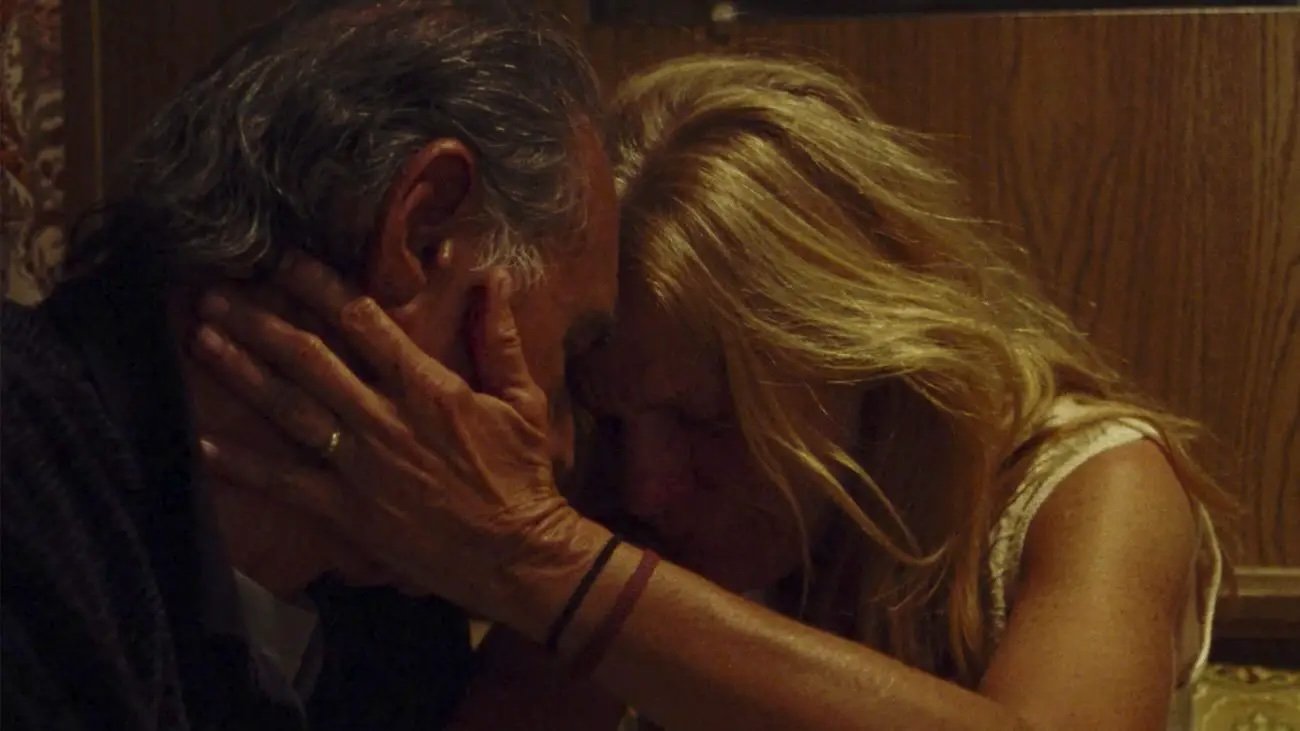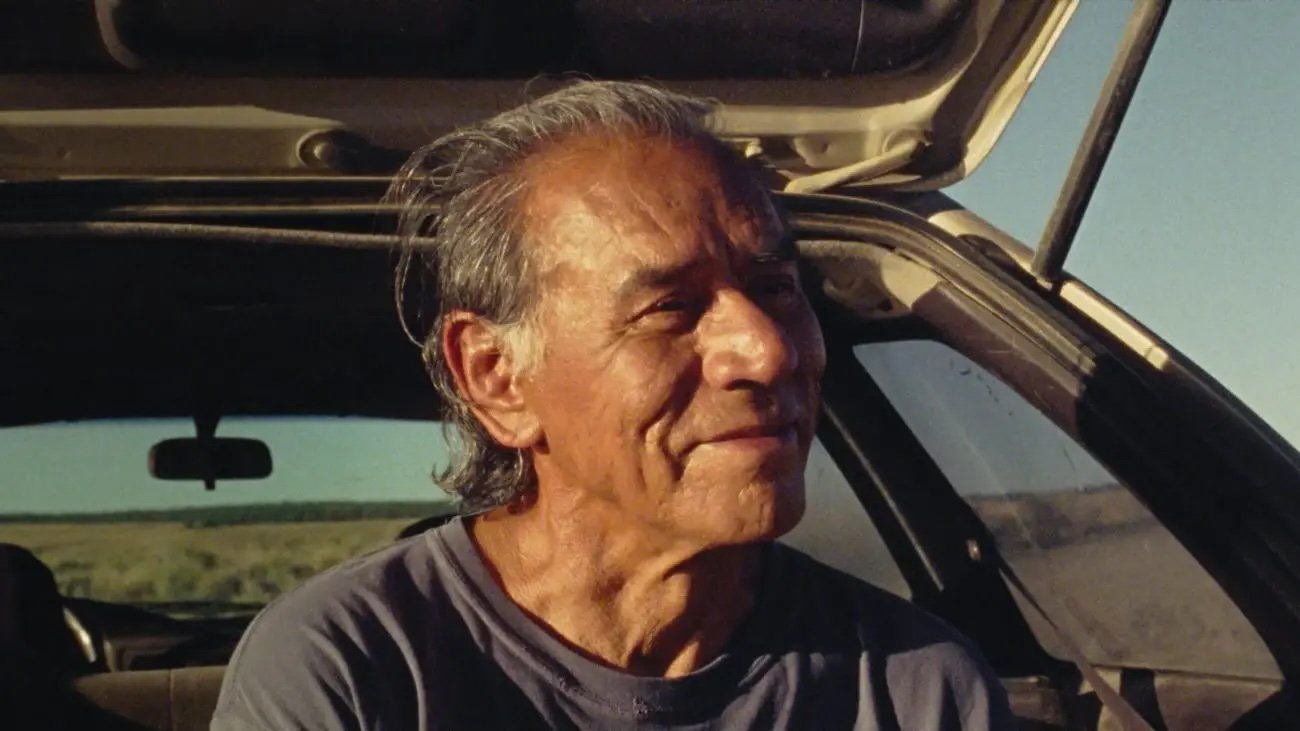“A Love Song”’s Strange Magic: Max Walker-Silverman Interview
This piece was originally published on Film Obsessive.
In many ways, A Love Song is deeply personal to Max Walker-Silverman. Not only is he the film’s writer, director, producer, and co-editor, its setting is a place he knows intimately. “That’s the lake I’ve been going to my whole life,” he says. “The movie’s full of my friends. The movie really comes out of the community.”
Faye (Dale Dickey) is waiting for someone at a barren campsite somewhere in the American west. Plans have been made for her and Lito (Wes Studi) to meet at this specific campsite for a reunion of sorts. The two knew each other when they were far younger and this meeting is their chance to reconnect. What unfolds is a quietly beautiful love story filled with humor, regret, and hope.
“I have loved and been loved by a lot of older people,” Walker-Silverman explains. “You see the questions that sort of start arising at a certain stage in life when people and their partners go different directions. Be it through divorce or death or any of the many ways that people are taken apart from each other. And the different ways people consider the possibilities of what’s next. For some there’s a presumption that maybe there is nothing next and an acceptance of solitude. Or an unhappy acceptance of solitude which are two different things.”
Courtesy of Bleecker Street Media © 2022
It’s impossible to not be taken aback by the beauty A Love Song manages to capture. There’s something very humbling about the large mountains, empty land, and grandness that exists in a very specific way in the American west. That’s home to Walker-Silverman.
“I love it,” he smiles. “But maybe sometimes I feel like is what I love the memory of it or is what I love my hopes for it rather than the present of it. We’re talking about a lot of hours driving around listening to music and wondering what’s next in life. I think there’s kind of a strange and lovely magic in imagining that we don’t know what’s in the future, but that it can truly surprise us in sweet and lovely ways.”
A lot of our conversation drifts to memory and how that influenced his writing of the script. Despite not featuring any fantastical beings, Walker-Silverman sees A Love Song as more of a “fable or a ballad. Something a little abstracted like an emotional experience of a reality.” The audience can feel that in the texture and the colors of the film. It creates a feeling of nostalgia for an experience that isn’t the audience’s. A blurry sense of what is real, what isn’t, and whether perception or actuality is more important when it comes to matters of the heart.
Courtesy of Bleecker Street Media © 2022
“Memory and reality are not the same. The ways we think about the past, the ways we idealize it, the ways we can actually love it, or the ways we can actually love the future. All those things I just find really fascinating,” Walker-Silverman says. “Maybe [the film] is a version of a memory somehow. This doesn’t mean it’s untrue, to the contrary, it’s deeply true in a more personal and subjective way. Hopefully that will allow people to accept the journey of the story on its own terms.”
A Love Song hinges on the performance of its two leads and Walker-Silverman has had his eye on Dickey since Winter’s Bone in 2010. “She just took my breath away in that role,” he says. “Both because she’s just so goddamn good, but also because I had the rare, rare experience of seeing an actor and being like, ‘wow, that’s like a real person. This is someone I could’ve grown up with and could be my neighbor.’ I could just never get her out of my head.”
Courtesy of Bleecker Street Media © 2022
Walker-Silverman conceptualized the script with Dickey in mind despite never meeting her and not being sure she’d be interested if/when the time came. “It was such a strange leap of faith to take,” he laughs. “This story really springs out of all these mushy thoughts that we’ve been discussing, but also just picturing her [Dickey] and picturing this landscape. So I wrote the role for her [Dickey] and for this place.”
“And then you start asking yourself,” Walker-Silverman continues, “‘Alright, who can share a screen with Dale Dickey?’ It’s not a very long list. Such a powerful honest presence there’s not many people who are going to feel real and beautiful next to that.”
Enter Wes Studi. “I don’t think anyone else could have told so much through so much silence and given these characters such a presence. They’re just really at the top of their game and just very good. I consider them legends and I’m just honored to have had the chance to work with them.”
Courtesy of Bleecker Street Media © 2022
Faye, Lito, and the landscape are the film’s main characters. There’s an intricate balancing act of wanting to tell a story and also wanting to revel in the silence that the environment so readily lends itself to. “I do consider my little mission to try to show tough places in a gentle light,” Walker-Silverman says. “And I do like the idea of these characters who have played a lifetime of really tough characters, and done it with such nobility, y’know, having a romance. That’s not weird, that’s just life.”
Ultimately, A Love Song is a delicate, simple story of people experiencing one of the greatest emotions. “When you’re deeply in love, as the world has shown us, that’s all you want to do, is tell love stories. So, I’ve got that little burden on my back.”
A Love Song is now playing in select theatres.
Follow me on BlueSky, Instagram, Letterboxd, YouTube, & Facebook. Check out Movies with My Dad, a new podcast recorded on the car ride home from the movies.




